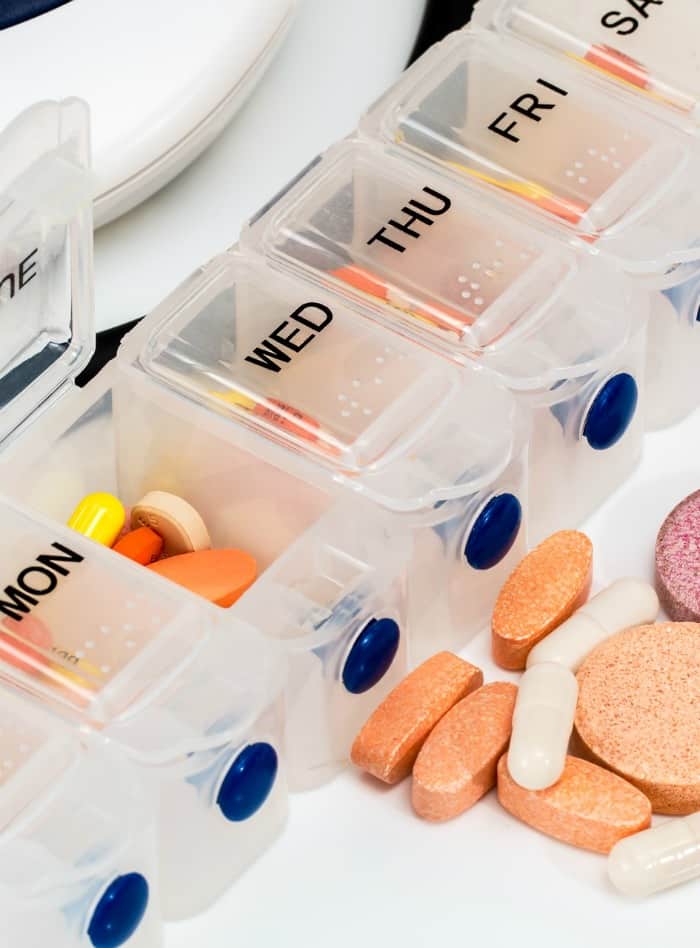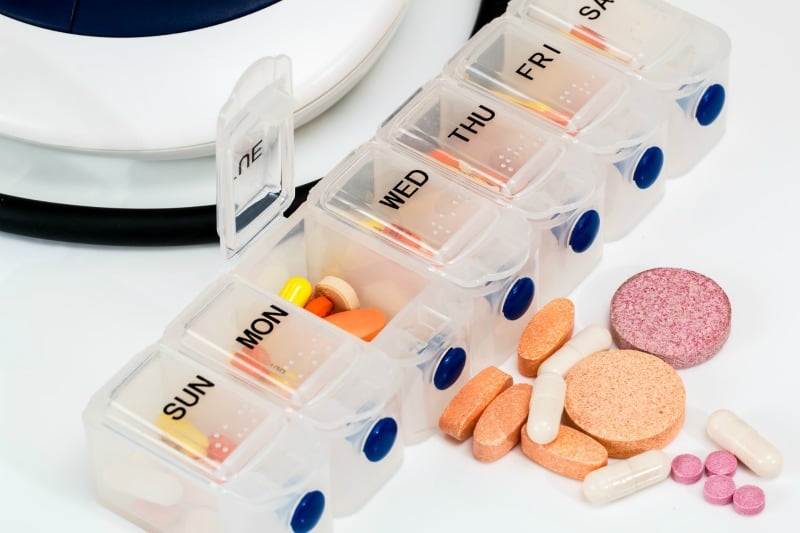Last Updated on August 4, 2021 by Ellen Christian
This post was sponsored by Influence Central as part of an Influencer Activation and all opinions expressed in my post are my own.
Posts may be sponsored. This post contains affiliate links, which means I will make a commission at no extra cost to you should you click through and make a purchase. As an Amazon Associate I earn from qualifying purchases.
As a caregiver, I deal with keeping track of medications on a daily basis. My husband takes a variety of different prescriptions and over the counter medications that his doctor recommends. While it’s easy to keep track of one or two daily medications, when you take several, it can get more complicated. It’s important to always consult your physician with questions about your medications and your health.
Keeping Track of Medications
Keeping track of medications doesn’t have to be difficult. Whether you use a medication tracking app or a piece of paper, the idea is the same. You need to know when you took it and when you need to refill it. By keeping track of these two things, you can feel more confident that the medication is being taken safely and is refilled on time. Some medications have a potential for misuse.
How to keep track of taking pills
Learning how to keep track of taking pills is important whether it’s for yourself, someone you care for or a child. Have you ever taken something for a headache and then wondered how many hours ago you took the pill so you knew when you could take another? Writing down the time would have helped you keep track of that.
Creating a routine for taking your medication is important. You should try to take it every day at the same time when it’s a daily prescription. But, what about those medications we only take when we need to? How do we keep track of things like painkillers for headaches or anti-diarrhea pills when our stomach is upset?
Everyone gets an occasional headache and 70% of travelers experience diarrhea. Even children have 5-7 episodes per year. It’s important to keep track of our usage of OTCs as well.
One of the OTCs my husband takes regularly is an anti-diarrhea medication. The active ingredient in many over the counter diarrhea relief medicines is loperamide. If used in the recommended dosage, it’s completely safe.
But, if taken in large doses, it mimics the effects (high) of opioids. We’ve had this discussion with his primary caregiver. But, it’s important for everyone to be aware of since there have been instances of teenagers using this to get high. Always be sure to check your labels for this ingredient.
Loperamide helps manage the symptoms of diarrhea, but it does nothing to deal with the underlying causes. You can help manage your digestion by eating a diet that is high in soluble fiber and eating foods with natural probiotics like my homemade yogurt recipe. The B.R.A.T. diet can also be helpful when you or your child is experiencing diarrhea. That stands for bananas, rice, applesauce, and toast.
Sometimes, it’s not an illness that causes diarrhea. It can be a result of traveling, stress from the holidays, or even what we eat. Since the holidays often mean stress, traveling, and diet changes, it’s not uncommon to experience this during the holidays. Staying active and making healthy food choices can help you stay regular during the holidays and at other times. I’m working on taking a long walk each day to encourage this.
The FDA has asked retailers to stop carrying packages with large quantities of this drug. But, it’s completely voluntary at this time. That’s why it’s so important that parents and other caregivers be aware of the potential for misuse.
Storing OTCs Safely
Of course, the other part of keeping track of medications is storing OTCs safely along with prescriptions. If you have young children, you probably already do this. But, what about when our children are teenagers or young adults? Our kids like to think they are old enough to manage their own medication. But, the fact is that misuse of medication by teenagers is a problem in this country whether knowingly or not.
Be sure that medications that have the potential for misuse are not purchased in large quantities. And, when you do have them in the house, be certain that you keep track of how many you have on hand. These things can help encourage the safe use of medications by everyone in the family.
The best place to store medicine at home is somewhere that you can monitor regularly. You want to be aware if this medication isn’t being used safely. Even if your teen thinks they understand safe medication usage, it’s always a good idea to have that discussion with them just in case.

Ellen is a busy mom of a 24-year-old son and 29-year-old daughter. She owns six blogs and is addicted to social media. She believes that it doesn’t have to be difficult to lead a healthy life. She shares simple healthy living tips to show busy women how to lead fulfilling lives. If you’d like to work together, email info@confessionsofanover-workedmom.com to chat.






